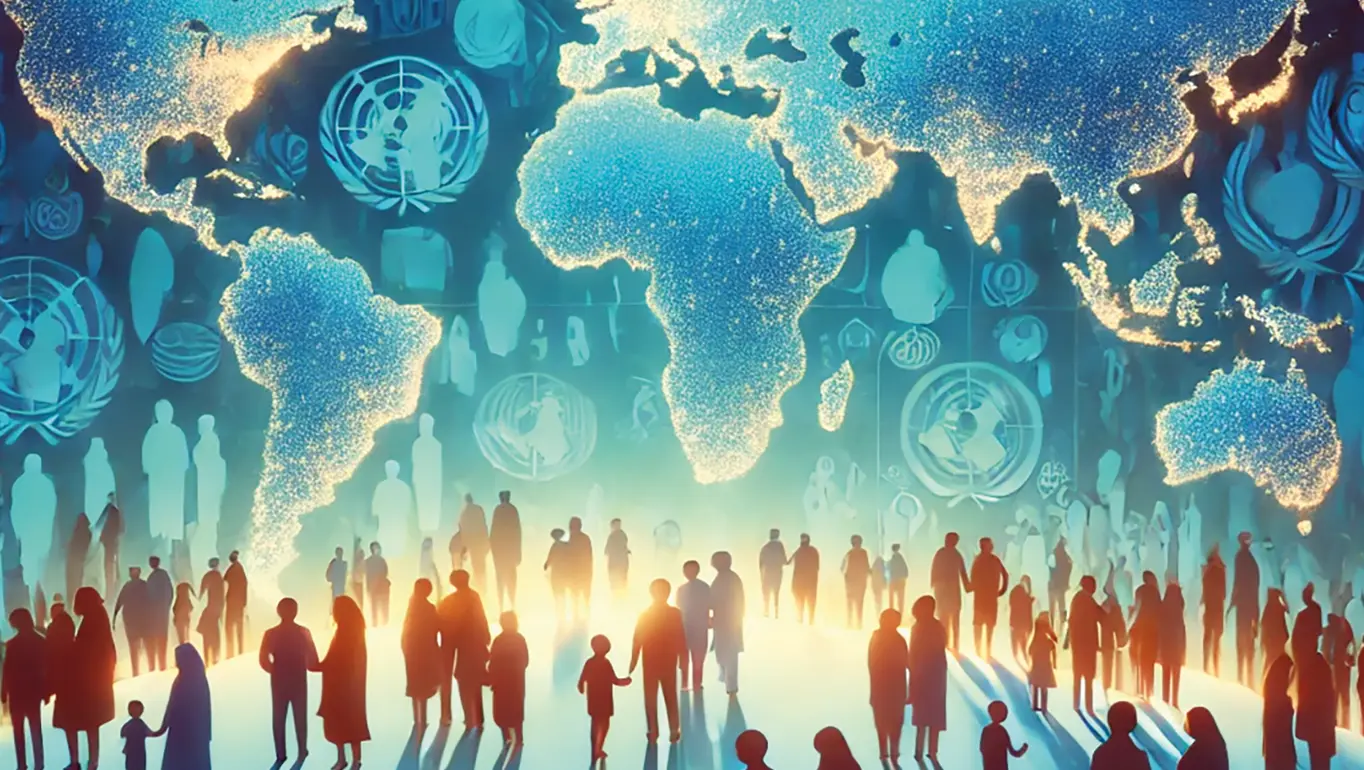Thanks to advances in health and development, today’s youth are likely to live longer, healthier lives than ever before. Yet, the demographic shift towards ageing populations brings challenges that must be addressed urgently. By 2050, the global population aged 65 and over will double to 1.6 billion, exposing systemic inequalities and vulnerabilities. A UN convention is essential to ensure older persons’ equality, dignity, and societal inclusion—not just for today’s population but for the youth and children who will be the older persons of tomorrow.
The role of OHCHR and the Independent Expert
The UN General Assembly’s adoption of resolution A/RES/78/324 in 2024 was a historic milestone, marking the conclusion of deliberations on older persons’ rights by the Open-Ended Working Group on Ageing. This agenda has transitioned to Geneva-based mechanisms, including the Human Rights Council, supported by the Office of the High Commissioner for Human Rights (OHCHR). Recognizing the urgency of this issue, OHCHR established a dedicated unit to advance older persons’ rights. The Independent Expert’s assessments further highlight gaps and offer actionable recommendations. Together, these efforts signify a global commitment to move from dialogue to implementation, underscoring the importance of a legally binding convention.
Government leadership
Governments have a pivotal role in transforming advocacy into actionable commitments. A UN convention would provide a harmonized framework to address ageism, ensure the inclusion of older persons, and align policies globally. By supporting a convention, governments demonstrate leadership in upholding human rights and fostering intergenerational solidarity. Older persons contribute as caregivers, workers, consumers, voters, workers, caregivers, and community references and leaders, strengthening societies. A convention would ensure they are visible, supported and empowered, and that intergenerational solidarity is recognized and valued, creating a legacy of dignity and inclusion for future generations.
Civil society advocacy
Civil society organizations, including NGOs, are at the forefront of advocating for older persons’ rights. Their persistent efforts combat ageism, promote intergenerational solidarity, and ensure older persons’ voices are heard in policymaking. Through engagement with states and international mechanisms, civil society amplifies the call for a UN convention, reflecting the collective determination to guarantee dignity, equality, and inclusion for all.
The cost of inaction
Failure to adopt a UN convention would perpetuate systemic neglect and increase societal costs. Without unified protections, ageism, abuse, and exclusion will persist, widening inequalities. A convention provides an opportunity to eliminate gaps, enhance policies, and allocate resources more effectively, ensuring accountability and fostering collaboration among states. In economic terms, the cost of inaction is much higher than the cost of action and the benefit is monumental!
Addressing violence and neglect
Older persons face high levels of violence, abuse, and neglect, often exacerbated by ageism. These issues remain underreported and inadequately addressed, particularly among older women and those with disabilities. A convention would mandate robust legal frameworks, enforce accountability, and promote awareness campaigns to combat ageist attitudes. By ensuring protection from violence, societies uphold the dignity and rights of older persons.
Health and care
Access to quality healthcare and long-term care is critical for older persons. However, ageism often results in inadequate treatment and exclusion from healthcare services. A UN convention would prioritize equitable access to healthcare, promote healthy ageing, and establish sustainable care systems that support both paid and unpaid caregivers. These measures would empower older persons to live fulfilling, dignified lives.
Disability and ageing
As people age, many experience disabilities, facing compounded discrimination from ageism and ableism. A convention would ensure inclusive policies, access to support systems, and recognition of older persons with disabilities as active participants in society. Integrating ageing and disability policies is essential to uphold the dignity and rights of older persons.
Climate change and older persons
Older persons are disproportionately affected by climate change and often overlooked in disaster responses. A UN convention would require states to integrate age-sensitive measures into climate policies and disaster risk strategies. This includes ensuring access to evacuation plans, shelters, and tailored information while recognizing older persons as key contributors to climate resilience.
Older persons in crises
Disasters, conflicts, and emergencies expose older persons to heightened risks, including exclusion and neglect. A convention would mandate equitable access to resources, healthcare, and shelter, ensuring older persons are active participants in disaster preparedness and recovery.
Migrants and refugees
Older migrants and refugees face unique challenges, including limited access to essential services and heightened vulnerability to exclusion. A UN convention would compel states to provide equitable healthcare, housing, and legal protections, recognizing the contributions of older persons in rebuilding communities and fostering stability.
Bridging the digital divide
The digital divide disproportionately impacts older persons, excluding them from services and opportunities. A convention would ensure affordable access to digital infrastructure, promote tailored digital literacy programs, and encourage the development of age-inclusive technology. Bridging this gap is essential for older persons to participate fully in society.
Gender equality
Older women face compounded inequalities from lifelong discrimination. They are more likely to live in poverty, experience health disparities, and encounter abuse. A convention would promote gender-sensitive policies, ensuring equal access to healthcare, education, and economic opportunities. Empowering older women challenges stereotypes and advances sustainable development.
The time for action is now. A UN convention on the rights of older persons is essential to address decades of neglect and systemic inequality. By upholding dignity, fostering inclusion, and addressing challenges such as ageism and the digital divide, a convention secures a future where older persons are celebrated as contributors to society. This legacy of equality and respect would benefit all generations.



